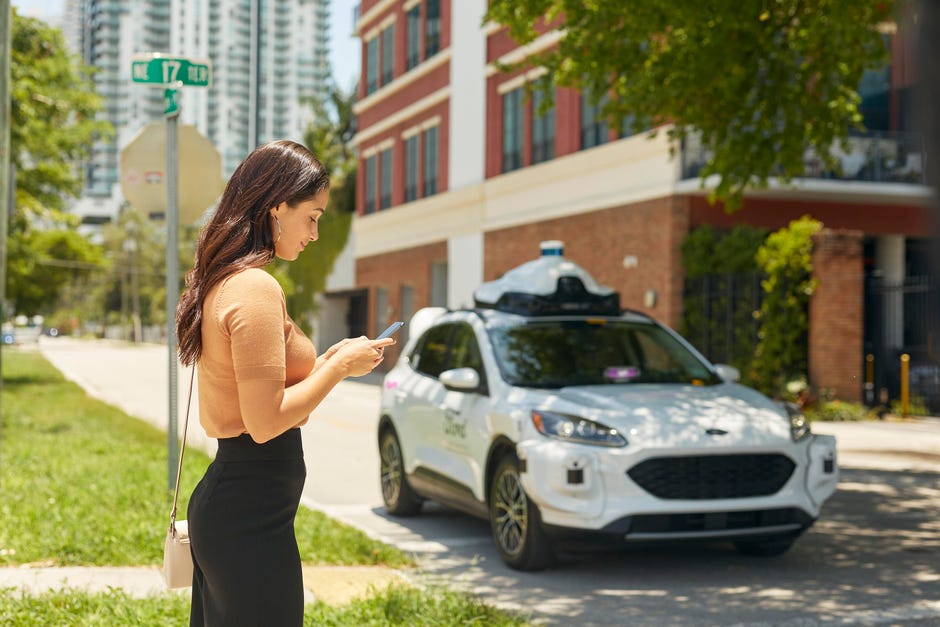Argo AI, Ford, and Lyft form the first large-scale collaboration in the US as a self-driving developer, a carmaker, and a ride-hailing company comes together. They will provide robotaxi service to Lyft customers in Miami and Austin. Which are expected to start by later this year in Miami and by next year in Austin.

Not only will the services be provided, but the data taken from them will be utilized for further developments. In the next 5 years, they plan to have at least 1,000 robotaxis on road. Ford Escape hybrid vehicles will be used with a safety driver in the driver’s seat. Fully autonomous vehicles will be on-road eventually. According to Lyft autonomous team head, Jody Kelman, the fully autonomous vehicles will be launched by 2023.
This partnership will enable all three companies to gain valuable insights into vehicles and turn the business into a commercially valuable business. The self-driving startup Argo AI is backed by Ford and Volkswagen. Anonymized data from the vehicles on safety incidents and passenger trips will be given to Argo AI. Which will further be analyzed and implemented accordingly like noting unsafe streets with its technology.
Furthermore, Lyft will receive a 2.5% stake at Argo AI. As the company is evaluated to be $7.5 billion, Lyft’s stake would be $187.5 million. Argo announced in June that it plans for an IPO later this year. All three companies have been working on autonomous vehicles individually, however, each expertise is to add up to the current partnership. Ford will be fueling and servicing the robotaxis.
Ride-hailing services
Waymo is one such company that has been testing its autonomous vehicles as ride-hailing services in select locations. Waymo is in partnership with Lyft to provide self-driving vehicles. Besides Waymo, Lyft is also in partnership with Motional. Usually, human drivers take up to 80% of the cost to drive the taxis per mile. A driverless future could mean lower costs and safer rides for the company. However, they still need to be regularly maintained, services, and managed accordingly.
Lyft’s Kelman said, “Our job is to generate the maximum revenue out of each of these vehicles by getting the highest utilization.” In April, Lyft sold its self-driving technology unit to Toyota. It was a $550 million deal, so Lyft could focus on consumer interface, fleet management, and routing.
Self-driving technology is an expensive development, where safety plays a crucial role. Often high-quality equipment or software is used, resulting in pricey options than anticipated. However, these recent developments could possibly lead to some better options.











